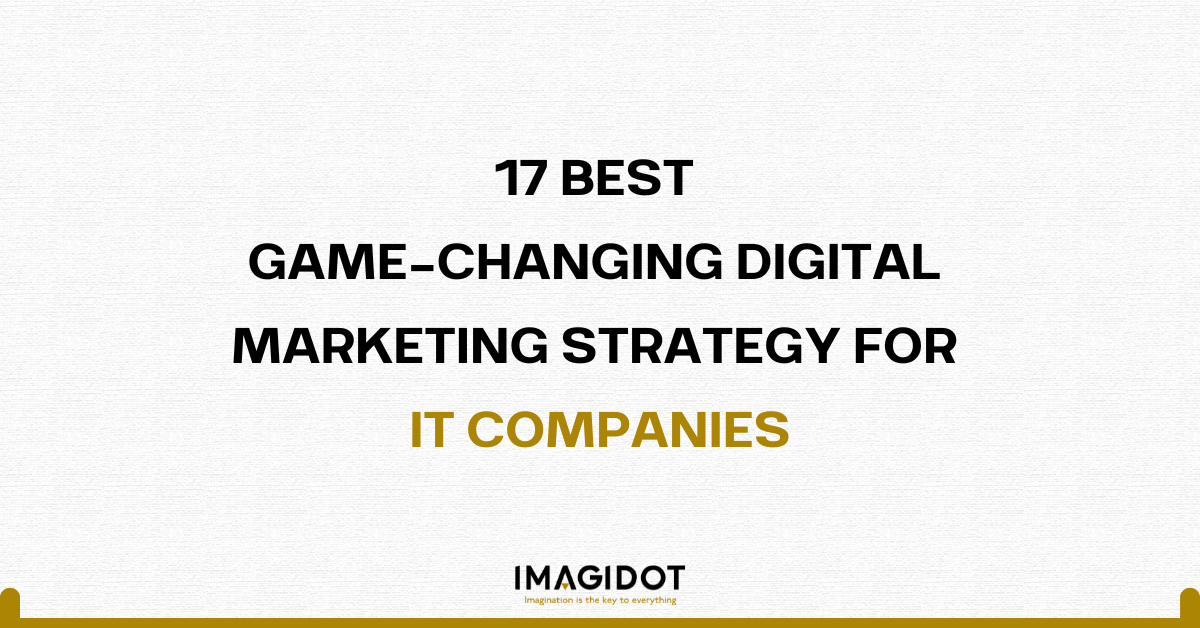Digital Marketing Strategy for IT Companies: A Comprehensive Guide
Is your IT company struggling to stand out in a crowded online marketplace, where every competitor seems just a click away? Are you tired of investing in digital marketing campaigns that yield underwhelming results and drain your resources?
Don’t worry, you’re not alone. This is a common challenge for IT companies. To overcome it, you need a digital marketing strategy tailored specifically for IT companies—a strategy that works.
The IT sector is the backbone of technological innovation, with new companies constantly emerging, each offering services, products, and consultations. As the industry grows, so does the competition, making it increasingly difficult for new IT companies to carve out a niche and reach their target audience.
In this blog, we’ll provide you with a digital marketing strategy designed for IT companies. This strategy will help you stand out from the competition and establish a unique presence in front of your niche audience. It will not only help you attract new customers but also retain them for the long term.
But before diving into the strategy, let’s first understand why digital marketing is crucial for IT companies.
Table of Contents
- Why Digital Marketing is Important for IT Companies
- Unique Challenges in the Digital Landscape
- Benefits of Digital Marketing for IT Companies
- Best Digital Marketing Strategies for IT Companies
- Understand Your Audience
- Competitor Analysis
- Set Clear Goals, Objectives, and USPs
- Website Optimization
- Create Different Offers
- Content Marketing
- Social Media Marketing
- Email Marketing
- Pay-Per-Click (PPC) Advertising
- Video Marketing
- Leverage SEO
- Analytics and Measurement
- Customer Relationship Management (CRM)
- Security and Compliance
- Continuous Improvement
- Budgeting
- Team and Training
- Conclusion
- FAQs
1. Why Digital Marketing is Important for IT Companies
Unique Challenges in the Digital Landscape
The rapid pace of technological change presents a unique challenge for IT companies. Newer and better solutions are constantly emerging, rendering yesterday’s solutions obsolete. Staying competitive means continuously updating technology and marketing approaches.
The Evolving Nature of IT Marketing
IT marketing has shifted from traditional methods to digital-first strategies. Relying solely on word of mouth or industry events is no longer sufficient. Everyone—customers and competitors alike—is online, making digital marketing a necessity for growth.
Digital Marketing as the Solution
Digital marketing is the game-changing solution for IT companies. By implementing targeted strategies, you can reach your audience and communicate your value proposition effectively. This is crucial for standing out in a crowded market.
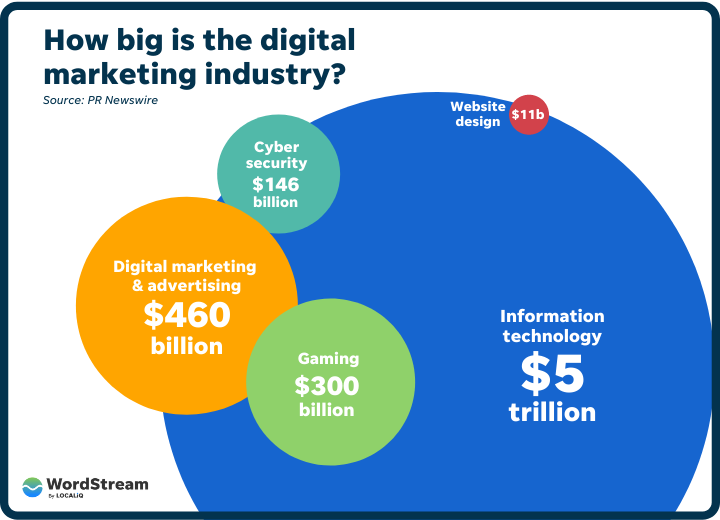
2. Benefits of Digital Marketing for IT Companies
Digital marketing offers several benefits that are particularly valuable for IT companies:
Increased Visibility and Brand Awareness
Digital marketing keeps your brand top-of-mind for your target audience. With a well-executed brand awareness strategy, you can reach a massive audience and establish a strong brand presence.
Lead Generation and Conversion
IT startups often struggle with lead generation and conversion. The right digital marketing strategy can help you generate Marketing Qualified Leads (MQLs) and Sales Qualified Leads (SQLs), and convert them into valuable clients.
Cost-Effectiveness and ROI
Digital marketing is more cost-effective than traditional marketing. With precise targeting, you can reach the right audience with minimal resource wastage, resulting in a higher return on investment (ROI).
Data-Driven Decision Making
Digital marketing allows for data-driven decision-making. By tracking campaign performance, you can optimize your strategies, halt non-performing campaigns, and scale successful ones.
Competitive Advantage
In a competitive market, digital marketing helps you position your brand as an industry leader with a unique identity, earning the trust of potential clients.
Revenue Growth and Scalability
Implementing the right digital marketing strategies drives revenue growth and enables scalability for your IT company.
3. Best Digital Marketing Strategies for IT Companies
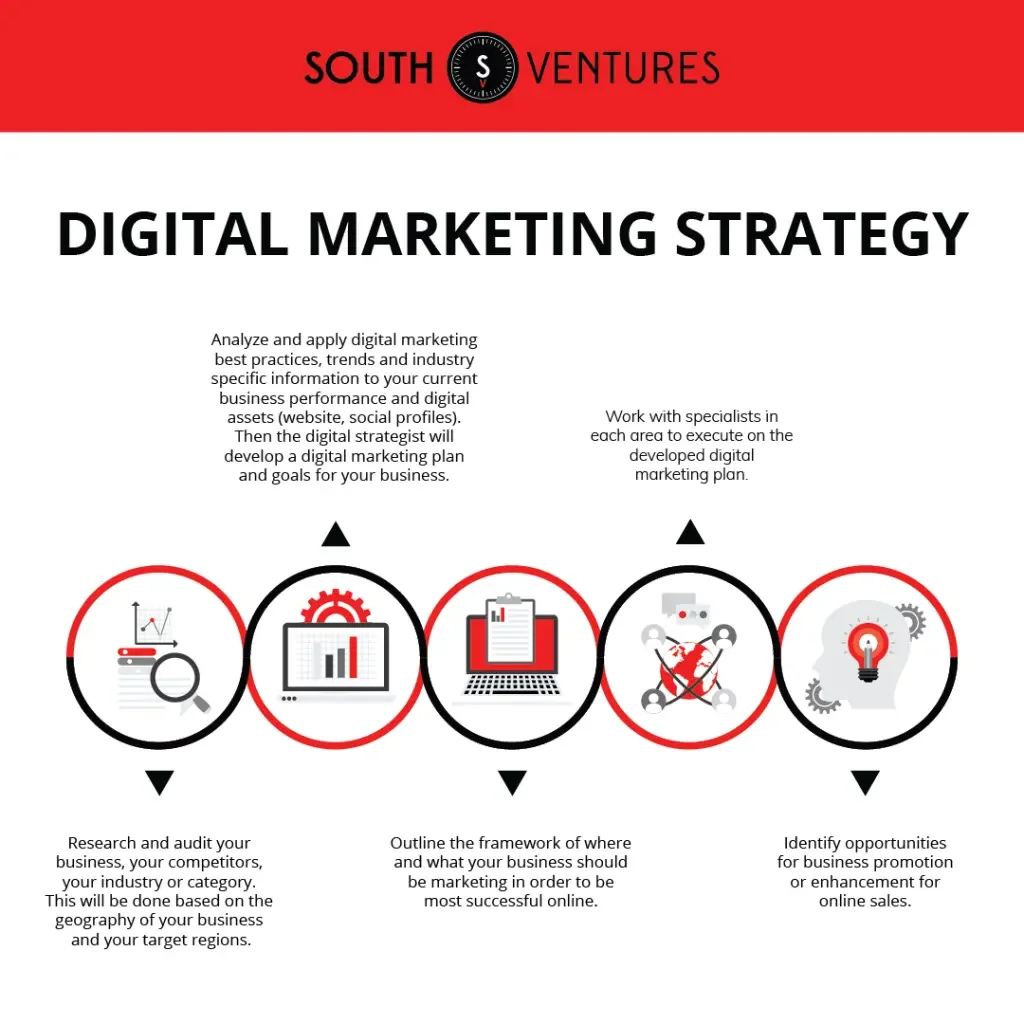
1. Understand Your Audience
The foundation of any successful digital marketing strategy is a deep understanding of your audience.
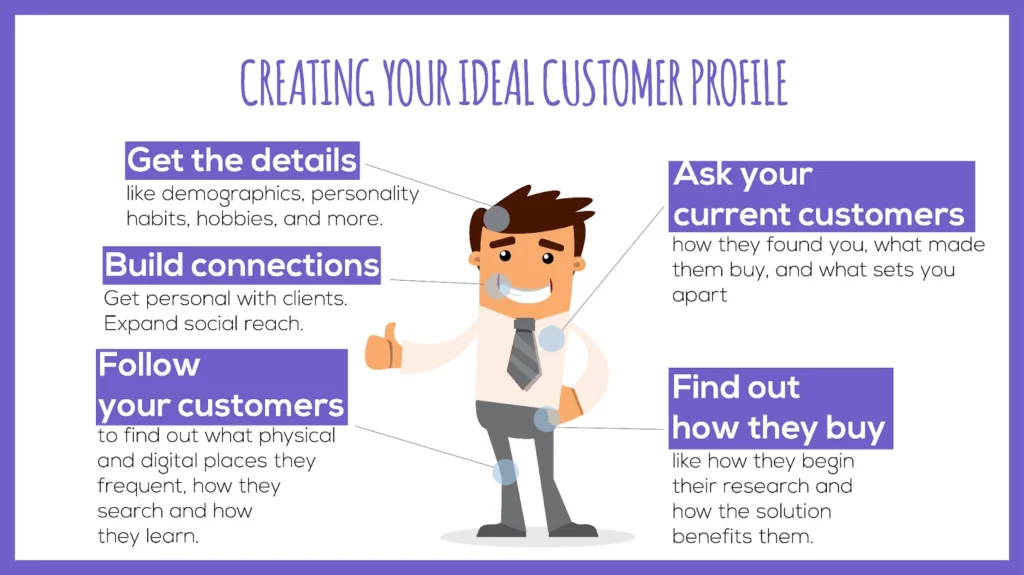
- Identify Your Target Audience: Define both your primary and secondary target audiences. For example, your primary audience might be IT managers or developers, while your secondary audience could include executives or procurement officers.
- Create Detailed Buyer Personas: Develop semi-fictional representations of your ideal customers. Collect data through surveys and research to create accurate personas.
- Identify Pain Points and Goals: Understand the challenges and objectives of your audience, and tailor your campaigns to address their specific needs.
- Behavior and Preferences: Analyze where your audience spends their time online, and use this information to guide your content distribution.
- Feedback and Iteration: Continuously gather feedback to refine your understanding of your audience and adapt your strategies accordingly.
2. Competitor Analysis
Analyzing your competitors is crucial for positioning your brand effectively.
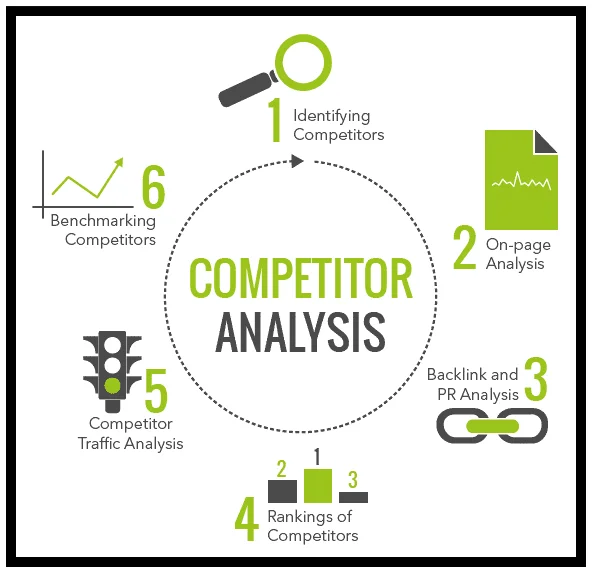
- Identify Your Competitors: Determine your direct and indirect competitors within the IT industry.
- SWOT Analysis: Perform a SWOT analysis to identify strengths, weaknesses, opportunities, and threats.
- Digital Presence and Marketing Strategies: Evaluate your competitors’ digital presence and marketing tactics to identify opportunities for differentiation.
3. Set Clear Goals, Objectives, and USPs
Establishing clear goals and unique selling propositions (USPs) is essential for guiding your digital marketing efforts.

- Set SMART Goals: Ensure your goals are Specific, Measurable, Achievable, Relevant, and Time-bound.
- Define Your USPs: Clearly articulate what sets your brand apart from the competition.
4. Website Optimization
Your website is your digital storefront, and optimizing it is key to providing a seamless user experience.

- User-Friendly Design: Ensure your website is easy to navigate.
- Loading Speed: Optimize for fast loading times to prevent user drop-off.
- SEO: Implement on-page, off-page, and technical SEO to improve search engine rankings.
5. Create Different Offers
Develop compelling offers that resonate with your audience and drive conversions.
- Lead Magnets: Offer valuable content in exchange for contact information.
- Demos and Free Trials: Allow potential customers to experience your product or service firsthand.
6. Content Marketing
Content marketing is essential for educating your audience and establishing your brand as a thought leader.
- Content Strategy: Develop a content strategy that addresses each stage of the customer journey.
- Thought Leadership: Publish authoritative content that showcases your expertise in the IT field.
7. Social Media Marketing
Leverage social media platforms to engage with your audience and distribute your content.
- Platform Selection: Choose the social media platforms that are most relevant to your audience.
- Engagement: Foster community building through regular interactions with your followers.
8. Email Marketing
Email marketing remains one of the most effective ways to nurture leads and retain customers.
- Email List Building: Continuously grow your email list with targeted campaigns.
- Personalization: Use personalized content to increase engagement and conversion rates.
9. Pay-Per-Click (PPC) Advertising
PPC advertising is a powerful tool for driving immediate traffic and conversions.
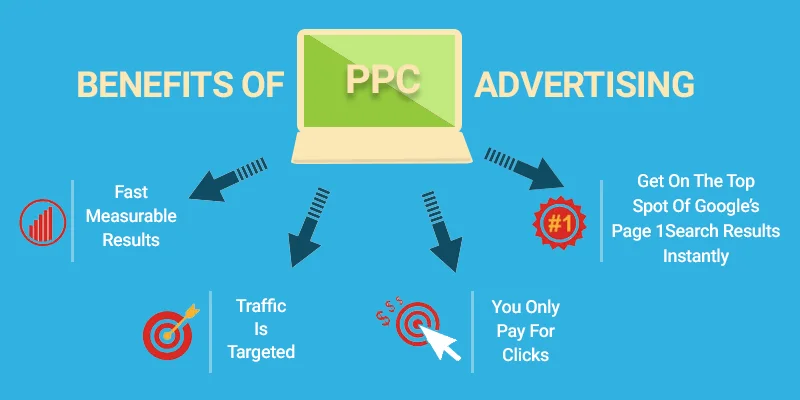
- Keyword Research: Identify high-value keywords to target in your PPC campaigns.
- Landing Page Optimization: Ensure that your landing pages are optimized to convert visitors into leads.
10. Video Marketing
Video content is highly engaging and can significantly boost your brand awareness.
- YouTube Channel: Create a YouTube channel to host your video content.
- SEO for Video: Optimize your video content for search engines to increase visibility.
11. Leverage SEO
SEO is a long-term strategy that builds authority and drives organic traffic to your website.
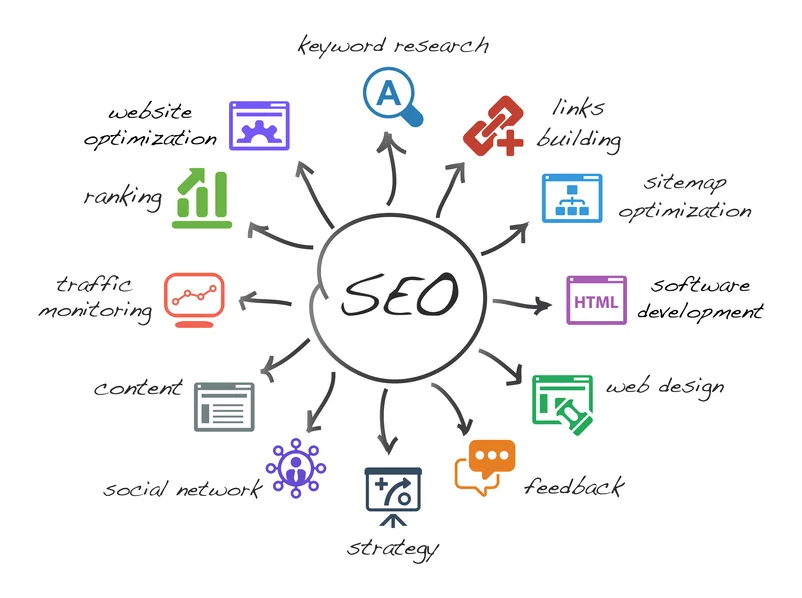
- On-Page and Off-Page SEO: Implement best practices to improve your website’s search engine rankings.
12. Analytics and Measurement
Track the performance of your digital marketing campaigns to make data-driven decisions.
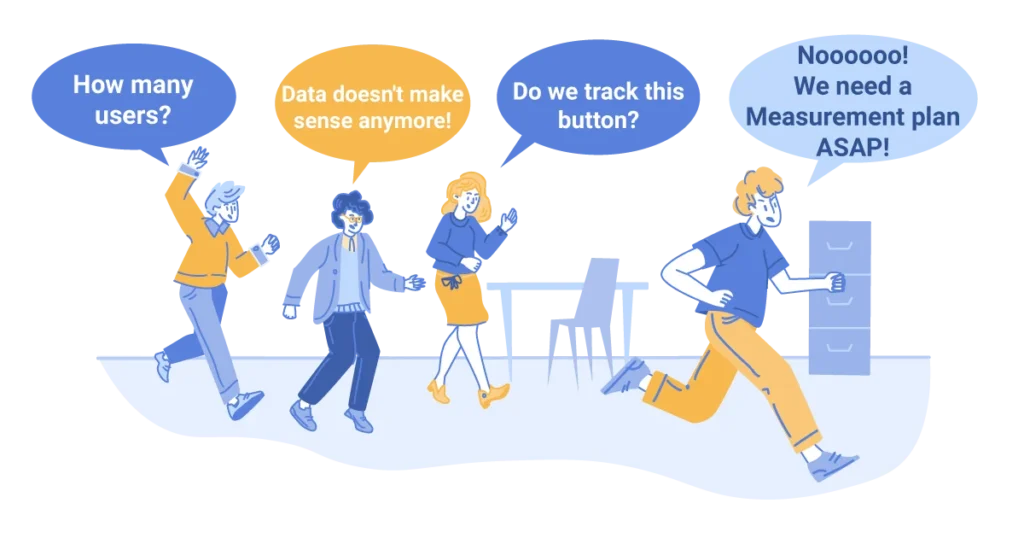
- KPIs: Define key performance indicators (KPIs) to measure success.
- A/B Testing: Use A/B testing to optimize your campaigns and improve results.
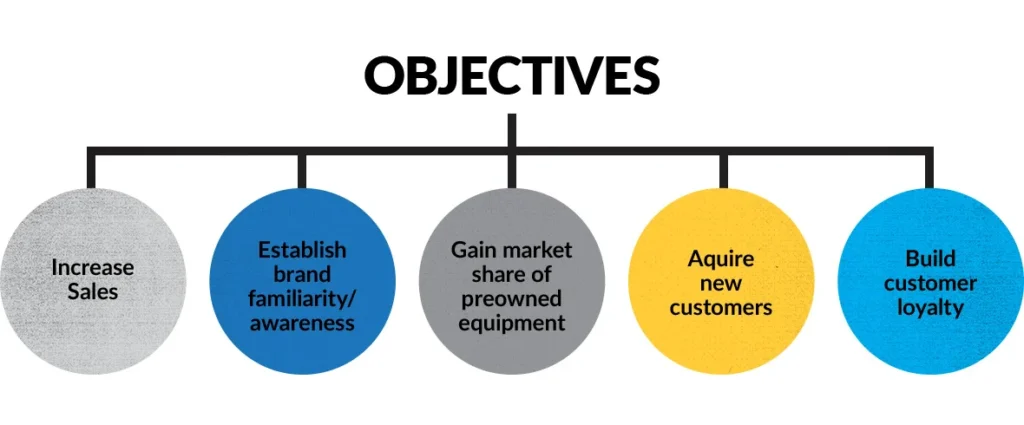
13. Customer Relationship Management (CRM)
A CRM system helps you manage customer relationships and optimize your marketing efforts.
- Lead Management: Use CRM tools to track and manage leads throughout the sales funnel.
- Data Analytics: Leverage CRM data to refine your marketing strategies.
14. Security and Compliance
Ensure your digital marketing efforts comply with data privacy laws and security best practices.
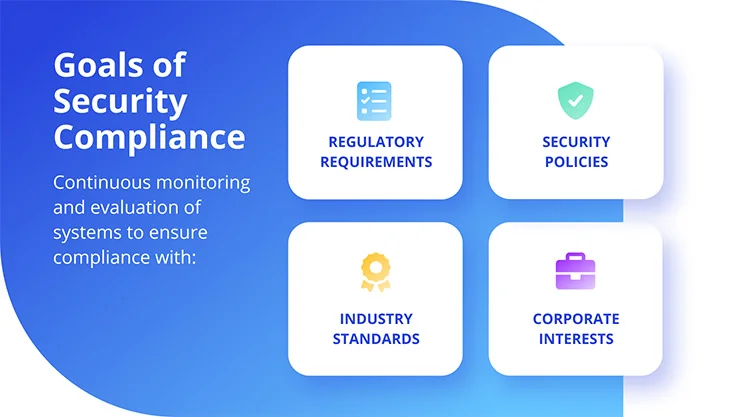
- GDPR Compliance: Implement measures to comply with data protection regulations.
- Security Audits: Regularly audit your systems to identify and address vulnerabilities.
15. Continuous Improvement
Digital marketing is an ongoing process. Continuously analyze and refine your strategies to stay competitive.
- Performance Reviews: Regularly review your campaigns to identify areas for improvement.
16. Budgeting
Allocate your digital marketing budget effectively to ensure the success of your campaigns.

- ROI Tracking: Monitor the return on investment for each campaign to optimize budget allocation.
17. Team and Training
Invest in training your team to keep them updated on the latest digital marketing trends and technologies.
- Continual Learning: Foster a culture of continuous learning to ensure your team stays ahead of the curve.
Conclusion
The IT industry needs digital marketing to stand out in a competitive market. By implementing the strategies outlined above, IT companies can effectively reach their target audience, build brand awareness, and drive business growth.
For a more in-depth understanding of digital marketing strategies for IT companies, consider enrolling in our AI-enabled digital marketing course or booking a free consultation with a top digital marketing consultant.
FAQs
What is the best marketing strategy for IT companies?
The best marketing strategy for IT companies involves
understanding your audience, competitor analysis, and using a mix of SEO, content marketing, social media, PPC, and email marketing.
Why is digital marketing important for IT companies?
Digital marketing is essential for IT companies because it helps them stay competitive, reach their target audience effectively, and drive revenue growth.
How can IT companies leverage SEO?
IT companies can leverage SEO by optimizing their website, content, and backlinks to rank higher on search engines and attract organic traffic.
What role does content marketing play in IT marketing?
Content marketing is crucial for educating the audience, building brand authority, and nurturing leads through valuable and relevant content.
Is video marketing effective for IT companies?
Yes, video marketing is highly effective for IT companies as it helps in demonstrating complex products and services in an engaging manner, thus increasing brand visibility and conversions.


